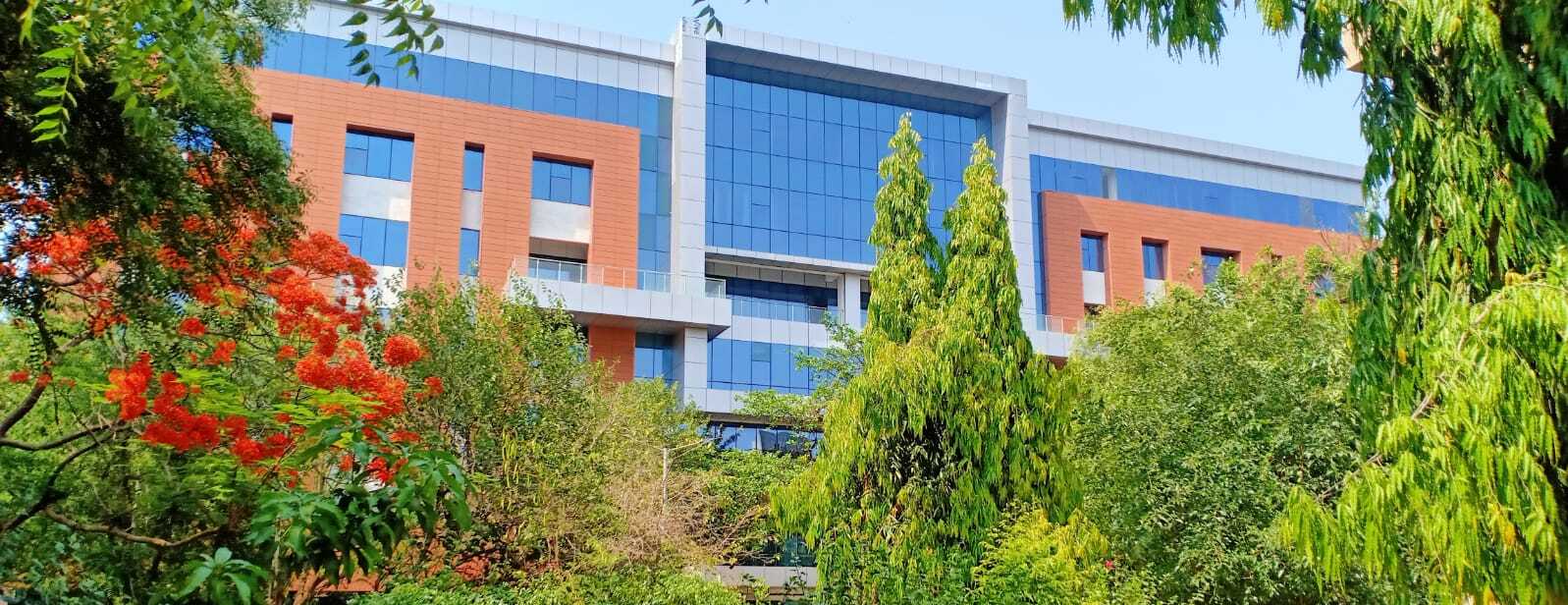Welcome To Our Department
Cognitive Science is the study of the mind - how it comes to be, what it is, and what it does. Researchers and practitioners in cognitive science come from a variety of conventional academic disciplines. Computer scientists, psychologists, neuroscientists, linguists, philosophers have all contributed to this exciting synthesis of insight into how the mind works. These insights are all the more useful now in trying to construct artificial human-like systems.
Latest News/Publications

News
-
Dr. Anveshna Srivastava has been appointed the 2025 Chair of the Doctoral Student Consortium (DSC), which will be conducted as part of the 33rd International Conference on Computers in Education at IIT Madras from December 1st to December 5th, 2025.
25 Apr, 2025 -
The Department of Cognitive Science, IIT Kanpur invites applications for its MTech. program for the 2025-26 session. Click here to visit the application portal (deadline for applications: 16th April, 2025).
03 Apr, 2025 -
The Department of Cognitive Science, IIT Kanpur invites applications for its MS (R) and PhD programs for the 2025-26 session. Click here to visit the application portal (deadline for applications: 16th April, 2025 2:00 pm). Announcement for MTech admissions will follow soon.
03 Apr, 2025 -
Dr. Anveshna Srivastava delivered a talk on 'Learning by Linking: Nurturing through Building Conceptual Connections' in a workshop on 'Early Childhood Education and Care', organized by Kislaya Nursery School at IIT Kanpur.
29 Mar, 2025 -
Prof. Narayanan Srinivasan was invited to deliver the Durganand Sinha Memorial Lecture at the annual conference of NAOP, held at Christ (Deemed to be University), Ghaziabad.
27 Feb, 2025

Recent Publications
- Thibault, N., & Srinivasan, N. (2026). Time, theta, and theory: A critical look at recurring cortical rhythms. Brain Connectivity. [WWW]
- Husain, S., Ahsan, A.,, Srinivasan. N., & Vasishth, S. (2026). The role of orthographic, lexical and syntactic factors during reading - the case of Hindi and Urdu. In H. Winskel & H.K. Pae (Eds.), Handbook of Nonlinear Writing Systems: Complex Processes and Learning Challenges, Springer.
- Rath T, Srinivasan N and Srivastava N (2025) The attraction effect in perceptual decision-making: a case of dominance asymmetry. Front. Psychol. 16:1661748. doi: 10.3389/fpsyg.2025.1661748. For more information, Click Here
- Mitra, A., & Srivastava, N. (2025). Perceived temporal distortions may explain the effect of precarity on intertemporal choices. Frontiers in Psychology, 16, Article 1671647. For more information, Click Here.
- Saha S, Pathak H, Nayok S, Hegde V, Boopathy P, Shah V, Balasubramani P.P, Sreeraj VS, Varambally S, Venkatasubramanian G. Exploring GABA-A Dysfunction in Chronic Functional Vomiting: An Intrinsic Case Study of TMS-EMG Guided Precision Treatment with Etifoxine. Brain Stimul. 2025; Accepted for publication.
- Lazar Tony, Liam Mason, Pragathi Priyadharsini Balasubramani P.P, Can risk and reward sensitivity to games inform about mood dynamics and upcoming episodes in Bipolar disorder?, Brainiacs 2025 Volume 6 Issue 1 Edoc NC2025041
- Husain, S., Arun, I., & Yadav, H. (2025). The effect of similarity-based interference on bottom-up and top-down processing in verb-final languages: Evidence from Hindi. _Journal of Memory and Language_, _143_, 104627. [doi [1]] [pdf [2]] [data & code [3]]
- Yadav, H., Frank, S., Futrell, R., Husain, S., & Stefan, L. F. (2025). Revisiting processing complexity of nested and cross-serial dependencies. _Glossa Psycholinguistics_, _4_(1). [doi [4]]
- Schoknecht, P., Yadav, H., & Vasishth, S. (2025). Do syntactic and semantic similarity lead to interference effects? Evidence from self-paced reading and event-related potentials using German. _Journal of Memory and Language_, _141_, 104599. [doi [5]] [pdf [6]] [code [7]]
- Sarma, S.S., Boruah, G. & Srivastava, N. (2025). How Robust Are fMRI- and EEG-Based Representational Similarity Analysis?. Computational Brain and Behavior. https://doi.org/10.1007/s42113-025-00257-5
